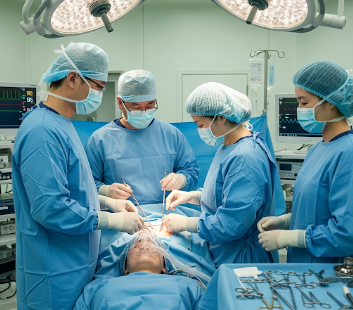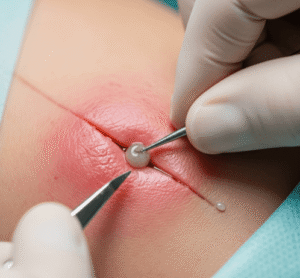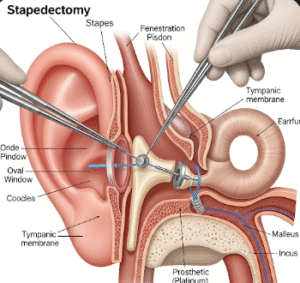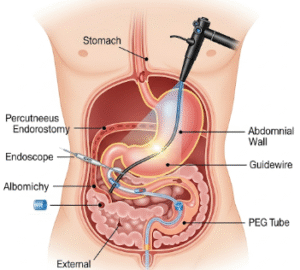Overview
An abdominal hysterectomy is a major surgical procedure in which a woman’s uterus is removed through an incision in the lower abdomen. This surgery is one of the most common gynecological operations and is usually recommended when other treatments are not effective in managing certain medical conditions. In Korea, abdominal hysterectomy is performed with precision and advanced technology, ensuring a safe and effective approach with minimal complications. Korean hospitals are internationally recognized for their expertise in women’s health, combining skilled surgical teams with state-of-the-art facilities to support both physical recovery and emotional well-being.
What is Abdominal Hysterectomy?
An abdominal hysterectomy involves the surgical removal of the uterus through an incision in the abdominal wall. Depending on the patient’s condition, the procedure may involve:
- Total hysterectomy: Removal of the uterus and cervix.
- Subtotal (partial) hysterectomy: Removal of the uterus but leaving the cervix intact.
- Radical hysterectomy: Removal of the uterus, cervix, part of the vagina, and surrounding tissues, usually performed in cases of cancer.
This procedure is often chosen when the uterus is enlarged, when there are fibroids, pelvic tumors, chronic pelvic pain, heavy bleeding, or cancer-related conditions. Unlike minimally invasive options such as laparoscopic or vaginal hysterectomy, an abdominal hysterectomy allows surgeons to have better access to the pelvic area, making it suitable for complex cases.
What are the Benefits?
✔️ Provides long-term relief from chronic pelvic pain and heavy bleeding.
✔️ Eliminates the risk of uterine and cervical cancers when removed.
✔️ Allows surgeons to manage large fibroids or pelvic tumors effectively.
✔️ Korean hospitals offer advanced surgical methods, reducing blood loss and improving recovery.
✔️ Enhanced post-surgical care and rehabilitation programs in Korea support quicker healing.
Procedure Details
1) How should I prepare for Abdominal Hysterectomy?
Preparation begins weeks before surgery and may include:
- ➤ Medical evaluation, blood tests, and imaging scans.
- ➤ Discussion with your doctor about the type of hysterectomy (total, partial, or radical).
- ➤ Stopping certain medications (such as blood thinners) to reduce bleeding risks.
- ➤ Fasting for 6–8 hours before the procedure.
- ➤ Arranging for post-surgical support at home, as mobility will be limited during recovery.
In Korea, hospitals provide comprehensive pre-operative counseling, helping patients understand the procedure and recovery expectations.
2) What happens during the procedure Abdominal Hysterectomy?
The surgery is performed under general or regional anesthesia. The process typically involves:
- ➤ Making an incision in the lower abdomen, either vertically or horizontally (bikini line).
- ➤ Carefully detaching the uterus from surrounding tissues, blood vessels, and ligaments.
- ➤ Removal of the uterus, and in some cases, the cervix, ovaries, or fallopian tubes.
- ➤ Closing the incision with sutures or staples.
The operation generally takes one to two hours, but complex cases may take longer. Korean surgeons often use advanced instruments to minimize tissue damage and bleeding.
3) What happens after an Abdominal Hysterectomy?
After the surgery, patients are monitored in a recovery room for a few hours before being moved to a hospital ward. The post-operative care includes:
- ➤ Pain management with medications.
- ➤ Encouragement to walk within 24 hours to prevent blood clots.
- ➤ Use of a catheter for urine drainage for the first 24 hours.
- ➤ A hospital stay of 3–5 days is common, depending on recovery progress.
- ➤ Korean hospitals provide scar care, dietary guidance, and physical therapy to aid faster healing.
Risks / Benefits
Risks may include:
- Infection at the incision site.
- Blood clots in the legs or lungs.
- Damage to nearby organs such as the bladder or intestines.
- Menopause symptoms if ovaries are removed.
- Longer recovery time compared to less invasive procedures.
Benefits include:
- Permanent solution for conditions like fibroids, endometriosis, or chronic bleeding.
- Reduced risk of gynecological cancers.
- Improved quality of life with long-term symptom relief.
- In Korea, patients benefit from high surgical success rates and modern recovery programs.
Recovery and Outlook
Recovery after an abdominal hysterectomy usually takes 6–8 weeks. During this period, patients should:
✔️ Avoid lifting heavy objects or strenuous activity.
✔️ Follow prescribed pain management and wound care.
✔️ Attend follow-up appointments for monitoring.
✔️ Engage in gentle walking and light activity to aid circulation.
Korean hospitals provide additional support such as rehabilitation therapies, emotional counseling, and hormone management for patients undergoing hysterectomy with ovary removal. The long-term outlook is generally positive, with most women reporting improved health and relief from previous symptoms.
When To Call the Doctor
Seek immediate medical help if you experience:
➤ Severe abdominal pain unrelieved by medication.
➤ Heavy vaginal bleeding or unusual discharge.
➤ Fever, swelling, or redness around the incision.
➤ Chest pain, shortness of breath, or leg swelling (possible clot).
➤ Difficulty urinating or bowel changes.
Best Korea Option / Process
Korea is an excellent destination for abdominal hysterectomy due to its modern medical infrastructure and internationally trained surgeons. Patients can expect:
- Personalized treatment plans based on their condition.
- Minimally invasive surgical options when suitable.
- Advanced pain management and scar-reduction treatments.
- Comprehensive post-surgery rehabilitation and counseling.
- Affordable packages compared to Western countries without compromising on quality.
With Korea’s reputation for excellence in women’s healthcare, patients can undergo abdominal hysterectomy with confidence, knowing they will receive some of the best care available worldwide.













